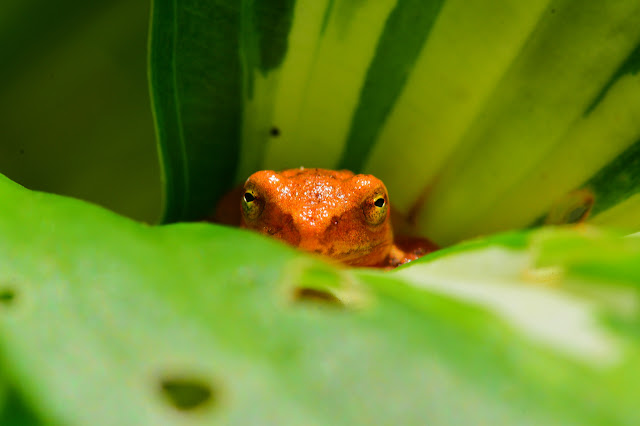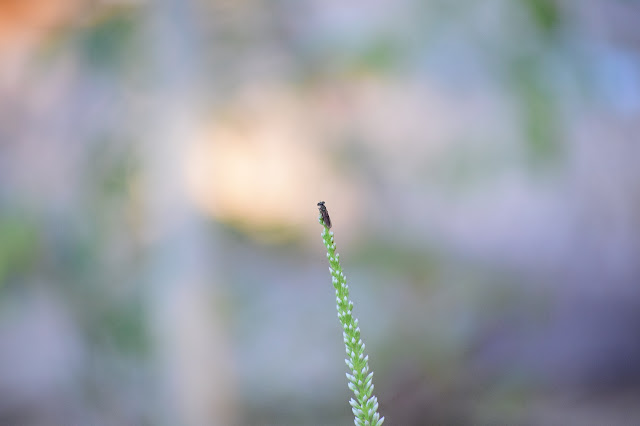Nature Comic #55 Dec 17, 2022
This week's nature-inspired comics introduce the term "Inverting" which means invertebrate (especially insects) watching as birding is to bird watching. I am an 'inverter' & bird watcher!
The Christmas bird count leaves me dreaming of Inverting. 
Bernie breaks through his introversion by Inverting
I have no Egrets, going from birding to inverting,
was feeling under the feather,
now I am riding high over an exoskeleton thus asserting;
from keratin to chitin,
from vertebrates to invertebrates,
from stiff warbler neck to
bumblebee buzz pollination
there is a whole lot of shaking going on.
I am converting - in part.
Thought birds were smart
until I observed a spelling bee
as a bird lister, I needed a pencil & paper chart
as an invertebrate lister, I need a calculator
so many more species, you see.
My Big (inverting) Year
covered miles and miles of walking
all in my 1.3-acre backyard - quite near.
I don't know all the invertebrate's names
but that's ok
cause no one has made that claim
millions of them haven't been discovered yet
never mind given names
so bring your net and
swish and swing away.
My birder friends
are getting used to my makeover
looking into flowers
instead of trees
Perhaps I am really
an insect watcher
and not a true inverter
yet
after all, I have observed
only
five or six hundred species
in our
backyard.
The benefit
If my neck gets sore
from looking up at birds
(Warbler neck)
I can always
look down
while six legs
and (one or) two pairs of wings
scramble and fly about.
From birder to an inverter
I have found the cure for Warbler neck
I
am
a
nature
inverter and birder.
- Bernie Paquette
“Birds [and Insects] will give you a window if you allow them. They will show you secrets from another world– a fresh vision that, though it is avian, can accompany you home and alter your life. They will do this for you even if you don't know their names– though such knowledge is a thoughtful gesture. They will do this for you if you watch them.”
― Lyanda Lynn Haupt, Rare Encounters with Ordinary Birds
Dreaming of Spring Inverting
Birders are lucky, they have the Christmas Bird Count, the nation's longest-running community science bird project. From December 14 through January 5 each year tens of thousands of volunteers throughout America brave snow, wind, or rain, and take part in the effort.
Meanwhile, we Inverters or insect-watchers, citizen scientists, and other observers of nature must mostly wait it out. We dream of when we will again be inverting from around Memorial Day through fall. Technically speaking, our invertebrate census can occur all year, however, most of the action is during spring through fall.
Like birders, we will brave any kind of weather to find our six-legged friends. Moreover, we will lift rocks, move aside fallen leaves, peer into pencil lead-sized holes in trees and fallen logs, search the cracks of stone walls, and go knee-deep into the water, mud, and muck. All that before spring blooms - then, hands-down, flowers draw in like magnets, our pollinating, beneficial, and incredibly diverse insect species for easy inspection.
Similar to birding if not more so, one can fill your invertebrate quota and more by observing in your own backyard. Your backyard is an ecosystem, what better place to do a scavenger hunt.
"While the first Bird Census or bird count began in 1900, insect collection if not observation began much earlier. ”Cuneiform texts found in Mesopotamia dating to earlier than 669–626 b.c. contain systematically arranged names of insects. Aristotle (384–322 b.c.) studied insects and taught entomology. In a.d. 77 Pliny produced an encyclopedia that included entries on insects.”
"As the number of curiosity cabinets continued to grow in the 16th and 17th centuries, a means to organize their contents became necessary. John Ray (1628–1705) attempted a classification of insects in 1705, which was published posthumously in 1710. Carolus Linnaeus (Carl von Linné) (1707–1778) published the first edition of his Systema Naturae in 1735, and the 10th edition, published in 1758, became the basis for modern insect classification.” Gordon M. Nishida, in Encyclopedia of Insects (Second Edition), 2009.
Being an inverter has its advantages. While birders are somewhat limited to about 260 bird species in VT, around 800 in the U.S., and about 11,000 in the world, Invertebrates surely rule the numbers game. According to the VT F&W website, “While precisely how many kinds of invertebrates are in Vermont is unknown, it has been estimated at approximately 21,400 species.” An estimate for the number of insect species in the US: is 91,000, and in the world 900,000 with between 2 and 30 million more yet to be discovered and named.
As in birding, it is inevitable that there will be inverters that are listers (looking for specific insects and keeping a list of every insect they have ever seen) and those that consider themselves insect watchers (and listeners) - looking at whatever insects are at the viewing location.
Both listers and watchers may record their observations to such data collection sites as iNaturalist, Seek, GBIF, eButterfly, and many more. These databases bring insect enthusiasts and scientists together in a sense. They help you identify the insects around you. “What’s more, by recording and sharing your observations, you’ll create research quality data for scientists working to better understand and protect nature.” -iNaturalist

What’s more natural than being a naturalist? Competition. What is more challenging than bird watching but just as rewarding? Insect-watching or Inverting! Competitive? Just check out the VT city and town Nature Challenge leaderboard at https://www.inaturalist.org/projects/vermont-biodiversity-by-city-or-town to see where your Vermont city or town ranks for a number of species, observations, and observers. As of this writing, Jericho is in 4th place for observations, 11th in species (2,008), and 9th in observers. Montpelier had 3.665 and Calais had 3,102 species.
“In the equally global City Nature Challenge, meanwhile, cities compete for how many sightings residents can log. The idea is to see which city can make the most observations of nature (of any sort, not just insects), find the most species, and engage the most people.” - AP
Sharpen your pencil for Christmas Bird Count. Then store up lots of pencils and a good sharpener (and perhaps a calculator) for spring inverting!
🐝Bee an inverter observer!
Need some help in the dreaming department? Check out more of my inverting photos below. Read more at Animal life in your backyard.
Comments: Ha! That’s fun, Bernie! My lean towards the literal would posit that perhaps we could also call you an ‘insecter! L.G.
Cute! Should it be "inverter or invertebrater"?"Hmm... Or, more limiting (removing mollusks, annelids, coelenterates, etc) "insecter"? Oh so confusing! P.M.











































